- Global Komaba
- English
- Outbound from Komaba
- Study Abroad Programs
- Global Praxis | Short-term
- Reports
- Course participant reports 2016
Course participant reports 2016
S Semester
Tokyo
- Tokyo:Representation and Reality
-
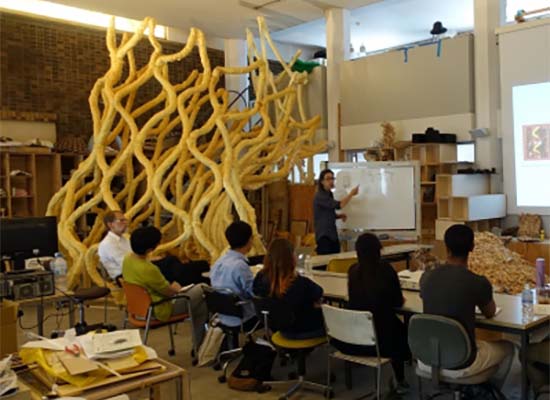 Student A: I think that those who don't understand Japanese learned the most because we weren't knowledgeable in Japanese culture at all. But because of the many lectures and the interaction with UTokyo students, I felt that towards the end all of us were slowly understanding how Tokyo works. We had all developed our own vague understanding of Tokyo.
Student A: I think that those who don't understand Japanese learned the most because we weren't knowledgeable in Japanese culture at all. But because of the many lectures and the interaction with UTokyo students, I felt that towards the end all of us were slowly understanding how Tokyo works. We had all developed our own vague understanding of Tokyo.
Student B: It was enlightening to learn about Princeton students' and UTokyo students' perceptions of each other's universities. As a Princeton student, I was especially interested in the big-city-university life of Todai students.
Student C: The TAs were all extremely helpful, and it was very interesting to hear many different perspectives from both the TAs and the students, who came from many different countries. The lectures, field trips, and casual conversations during free time with students, TAs and faculty all contributed to the wonderful experience I had taking the course.
Germany
全て開く
- Current Situation of the EU and its Problems
-
(NS II 1)
My overall gain from participating in the European Summer Academy was immense and every part was undeniably valuable. Yet if I had learned one thing, it would be the difficulty of communicating the benefits of the EU to its citizens. As one the lecturers discussed, the rise of nationalism and populism poses as a threat to European integration. Being Japanese and from a entirely different continent, I have always envied the ease in which EU citizens traveled, changed jobs, and imported and exported goods without internal tariffs. Yet many of my European associates and classmates seem to see the EU as a “Brusselo”, some sort of authoritarian monster eating up tax money and creating more problems than they are solving. “Screw the EU, Viva La France!”, a French friend of mine stated when I asked his opinion. As I type this very sentence, activists march on in Warsaw, protesting against an anti-EU government while my previous classmates (I graduated high school in Poland) shake their heads. “We don’t need the EU”, they tell me. “Who is supporting the EU? Some politicians and economists. We don’t trust them.” EU hostility feels oddly close to home, even if I reside in Tokyo. The youth and the layman have lost their faith in European Integration. At the program taught at the seminar house, I learned how these nationalistic trends are taken as a serious threat, and what the EU is attempting to do to combat them. In my personal opinion, education is key. Many young people lack the fundamental knowledge to understand the economic benefits, and thus this must be taught. I believe that once people see monetary benefits, they’ll hop on board.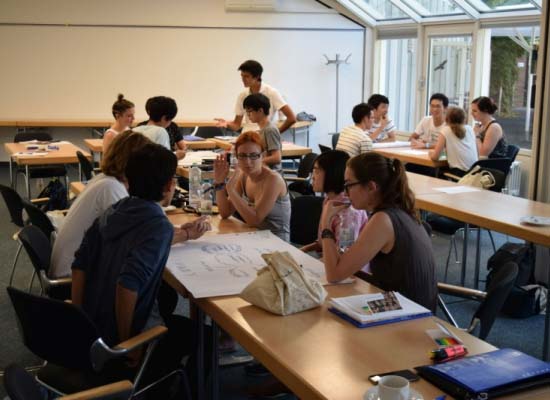 Discussion with friends
Discussion with friends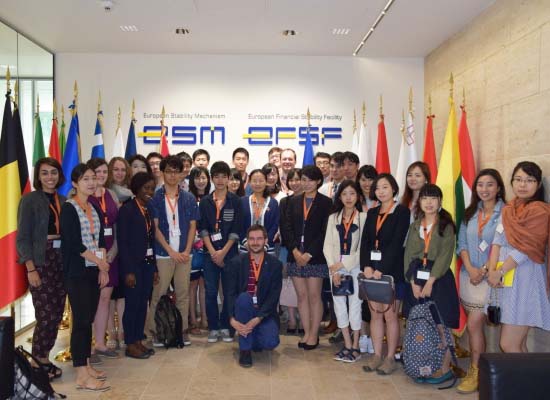 Group photo at European Stability Mechanism
Group photo at European Stability Mechanism
- German Language School in Bonn
-
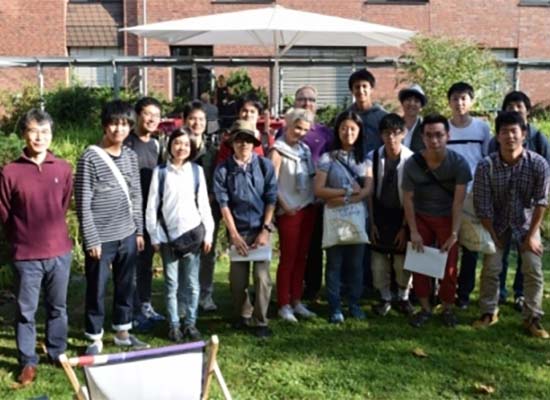 (Yusuke Kojima, Freshman, Science II Division)
(Yusuke Kojima, Freshman, Science II Division)
My main motivation to participate in this seminar was to improve my German Language skills, and I was therefore very much looking forward to the morning German language courses, however I was also a little nervous about taking German classes completely in German. However, the teacher used simple German, so I was able to understand pretty well, and I think that my listening skills improved. The content of the classes was even better than I expected, and I not only did I learn how new grammar could be used in everyday situations, the teacher taught us the German words for notable things around us, and the students were able to ask how to say various things in German. This helped me gain language skills that I can actually use in daily life. We also had a class where we went to a German supermarket, which was very a very valuable experience because it would not have been possible in Japan. One thing that stands out in my memory is learning the word "guck." When you look up this word in the dictionary, the pronunciation is written as "gook." However, I learned in class that the actually pronounciation is "kook," and I was then able to recognize when children on the street said "guck mal!" to their parents. At that moment I was thankful that I had come to Germany, because I was learning real German that I couldn't absorb by just looking up words in a dictionary in Japan. More than teaching us new German, this course was more helpful in allowing us to use the German that we had learned in the Junior division of UTokyo, and to build upon those skills. Therefore, I can't really say that I made great progress with my German just through this course. However, this course has influenced how I will study German from now on.
A Semester
Hungary
- In the Pursuit of Culture, History and Architecture in Central Europe, Hungary
-
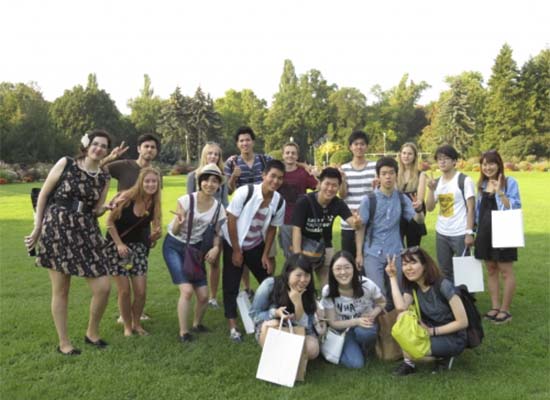 (HS I)
(HS I)
We had many opportunities to enjoy the program with Hungarian students, and the experience helped me develop in several respects. Of course, I learned a lot from the lectures, but I think I learned more from the Hungarian students, both directly and indirectly.
Through them I was able to see a part of Hungary, and understand what the country is actually like. Compared with Japan, I found similarities as well as differences. Hungarian students were full of hospitality, hardworking, and a little bit shy. My impression was that they seemed to be more similar to Japanese people than to Americans. I found it interesting that Japanese and Hungarians share some experiences in childhood, as we both watched Japanese anime and read Japanese manga when we were younger. Japanese culture has had a bigger influence than I expected and it was an opportunity to appreciate Japanese culture again. I think that the biggest difference is that Hungary is exposed to other countries. I understood that immigration was actually a big issue for them by participating in an active debate about it during a lecture. I aquired new perspectives and I realized that the issue was a familiar one. That is why I am interested in immigration and discussed it in my essay. I used to not pay attention to immigration problems even though there has been discussion about whether accepting immigrants into Japan is a good solution to our decreasing population.
I learned the joy of trying to communicate with people from different cultures. I found out that my English being poor is not such a big problem when I go abroad and make friends with those who live there. It was my first time to communicate with non-native speakers in English. I think international communication is similar to this since there are more non-native speakers of English than there are native speakers in the world. I realized that I should be more careful about what I percieve about others. When I talk with Japanese people, I mainly pay attention to what I say. However, when talking with people in a different culture, the way you talk and the context are really important. Information that is not spoken, and only implied by context is also important. If I really wanted to communicate, I found that it was not so difficult. On the contrary, I became confident when talking with foreign people. As the next step in this journey, I will keep improving my English.
I also aquired the motivation to study harder by watching the hardworking students I met on the program. I was impressed that some of them had prepared for the presentation beforehand. The notebooks for studying Japanese that some students showed me were also impressive. All the students were very willing to learn and understand different cultures. I realized that I have to work harder and more actively. I had some opportunities to talk with the Hungarian students about dreams and our futures, and it encouraged me to continue developing myself even after I return to Japan.
Australia
- UTokyo/ANU Exchange
-
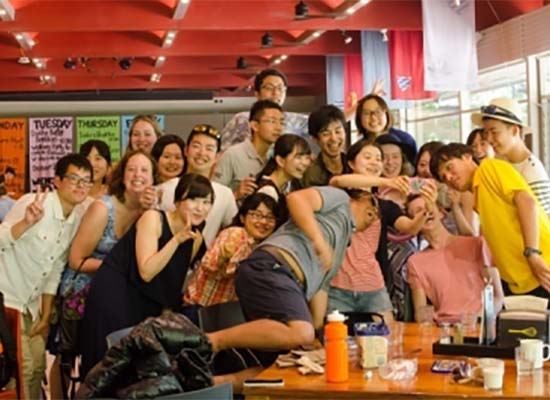 Student Reports
Student Reports
Throughout the course, I enjoyed a lot, felt a lot, and learned a lot. I not only gained knowledge of Australia, but also gained new perspectives on the Australian way of life. Of course after listening to many lectures on Australia with the program I was able to understand better about Australian nature and culture, however, it was even more meaningful for me to learn about different ways of thinking by passing time with ANU students. (Science II, 2nd year)
During the session in Japan, we learned about Japanese culture, especially in regards to Mt. Fuji. I realized that I didn’t know much about Japan. […] I felt embarrassed. I realized that as a Japanese person, I need to learn more about Japan. […] In Australia, we learned about the changing environmental situation from many perspectives, such as the arts, nature and culture. The most interesting topic for me was biodiversity. I knew that people had a responsibility to maintain biodiversity, but I didn’t know why. The lecture made me rethink nature, and presented me with new questions which had never occurred to me. (Science I, 1st year)
In order to build an internationally successful career, I have to master English. I have to expand my vocabulary, be able to understand what native speakers say and clearly express my own thoughts. At the same time, I don't think I have to worry too much because I realized on this trip that native speakers of English don't care about a non-native's speaker’s fluency. They are just interested in what he or she has to say. This is the type of thing that I learned through this course, and that I don’t think I would have learned if I had stayed in Japan. (Science I, 1st year)
I admire the attitude of ANU students toward lectures. They are highly motivated to acquire new knowledge. They ask many questions during lectures. They are so serious when they prepare for presentations that they keep discussing in their futons at night. […] Japanese students tend to think that professors give lectures and that students are like customers, just listening to whatever is being said. During this program I learned that students go to university to learn. I want to incorporate this positive learning style into my studies next semester. I hope the motivation that I gained through this program will last forever, or at least until the end of next semester. (Science I, 1st year)
China
- Summer School for Chinese Language
- 詳細はこちらをご覧ください。
Republic of Korea
- Campus Asia Winter Program
-
My “BeST” Memories
江島徳政(EJIMA NORIMASA)
教養学部文科3類2年
文学部歴史文化学科日本史学専修内定
I participated in a joint project "BeST Program" hosted by Beijing University, Seoul National University and The University of Tokyo during February. "BeST" comes from the initials of Beijing, Seoul and Tokyo. This conference lasted for 3 weeks. All the members who joined this project spent the first 2 weeks studying at SNU and then students of SNU and UT spent remaining 1 week in Tokyo. Students from UT were very impressed by the English conversation skills of students from SNU and BU. We UT students tried our best to communicate with SNU and BU students using our limited English skills. Some of the UT students were communicating with SNU students in Korean.
The days in South Korea were very exciting for me. I participated in the impeachment demonstration of President Park with some SNU students. I was very surprised by the passion of people who joined the protest. Since political movements are prohibited by the Communist government in China, I also found it interesting to see and learn how Chinese students reacted to the political protest. When I went to the DMZ (Demilitarized Neutral Zone) between South Korea and North Korea during the project, I felt sad about the tragedy of confrontation between the same “朝鮮民族”. I heard that there are lots of families that are still separated in north and south because of the Korean War. It was too painful for me to imagine a situation where people would kill their family and friends. I sincerely wish that the confrontation in the Korean Peninsula will be settled peacefully as soon as possible. I also had a look at the statue of comfort woman “従軍慰安婦像,” that has great influence on the relationship between Japan and Korea. Although I am not sure which argument is closer to the truth because I have little knowledge about it, I found it painful to realize that the victims of reckless wars are always innocent people. We talked about various topics concerning our three countries. We found many differences while we were talking about cultural aspects such as food, clothes, residences, music, and so on. We also discussed about the historical man"金九", the leader of the Korean independence movement who fought against the Great Empire of Japan during WWⅡ. In addition, we discussed the territorial issues among Japan, China, and Korea. It was very important for me to exchange opinions and ideas directly with the students of each country.
It was valuable for me to think about my own career and future during this project. I decided to major in Japanese history from this April. A lot of historical knowledge that I learned during my high school days contributed to making friends with each other. I enjoyed talking about “世宗” and “李舜臣” with Korean students, and also enjoyed talking about “三国志” and ”紅楼夢” with Chinese students. Discussing each other’s history is one of the ways to show each other courtesy. I learned that understanding each other's history can be perceived as a proof of the trust and respect we have for each other. I became very proud of my decision to major in Japanese historyduring my remaining time at UT. It was valuable for me to gain confidence in my past and the steps that I will take from here on out.
I really had fun time spending with SNU and BU students. Although I learned more things than I expected, the most important thing was very simple. The best thing I learned was that “liquor, art, and love overcome borders!”
We can easily become friends by eating delicious meals together, chatting about romantic love, and appreciating wonderful music and art!
There are two different meanings of the Japanese word “はし”. One is “bridge(橋)” and the other is “chopsticks(箸)”. Although various differences exist among Japan, China, and Korea, we “East Asians” share the same culture using chopsticks(箸) when we eat food. I think it is our mission to share wise wisdom like “はし(箸)” to overcome various conflicts and gaps, and become “はし(橋)”the bridge between our three countries.
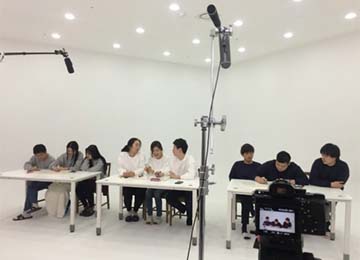
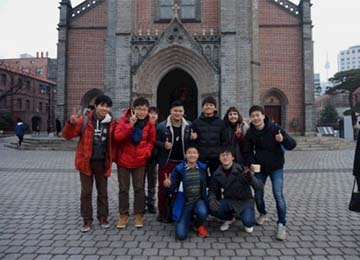



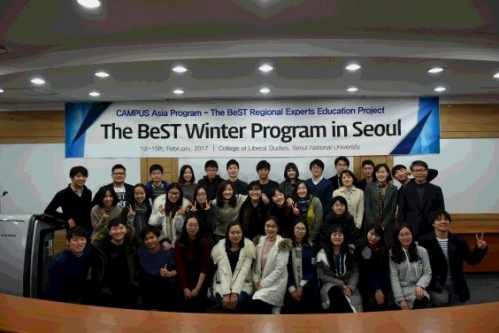
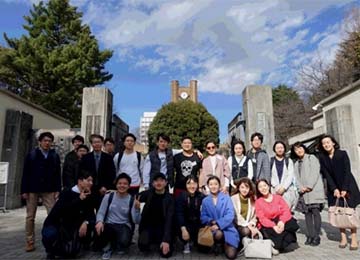
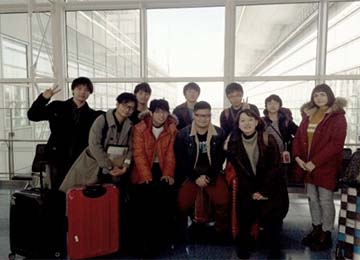
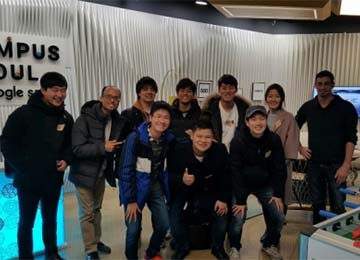
Australia/Tokyo
- Visible/invisible Cities: Tokyo/Sydney/Melbourne
-
College of Arts and Sciences, Senior Division, Miku Tobari
 The theme of this program was “Visible and Invisible City.” We learned a lot about the “visible” and “invisible” aspects of Tokyo from various viewpoints such as infrastructure, religion, and culture.
The theme of this program was “Visible and Invisible City.” We learned a lot about the “visible” and “invisible” aspects of Tokyo from various viewpoints such as infrastructure, religion, and culture.
One of the most notable features of this program is the wide range of fieldwork. For example, as some “invisible” aspects of Tokyo, we visited the Metropolitan Area Outer Underground Discharge Channel, and Tokyo Metropolitan Government Waste Landfill Site, to learn that our ordinary life is made possible by an invisible infrastructure and people’s support. We also walked around a Korean community and went to an Islamic mosque. These experiences enabled me to realize how people with silent voices in minority groups are living in different ways from ours. This program was quite helpful, not only for Australian students to understand Japan, but also for Japanese students to once more reconsider the oft-overlooked mechanism and reality of “Tokyo” and “Japan" in a variety of ways.
Filmmaking with Australian students was also enjoyable. We made short movies to reflect modern Tokyo`s “visible” and “invisible" aspects. Talking with and getting to know Australian students both in class and out of class left me with lots of great memories.